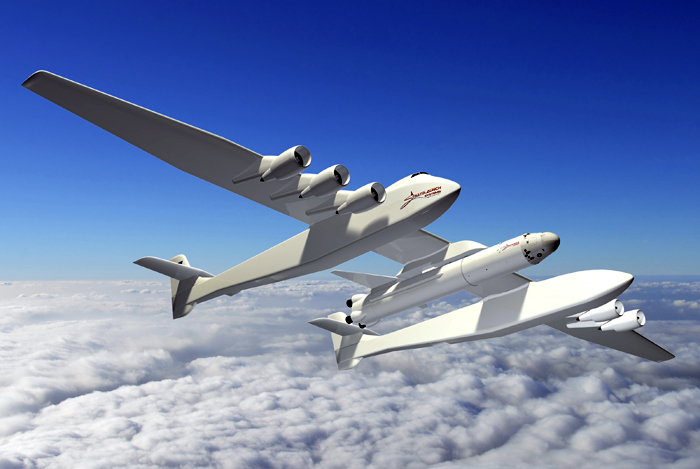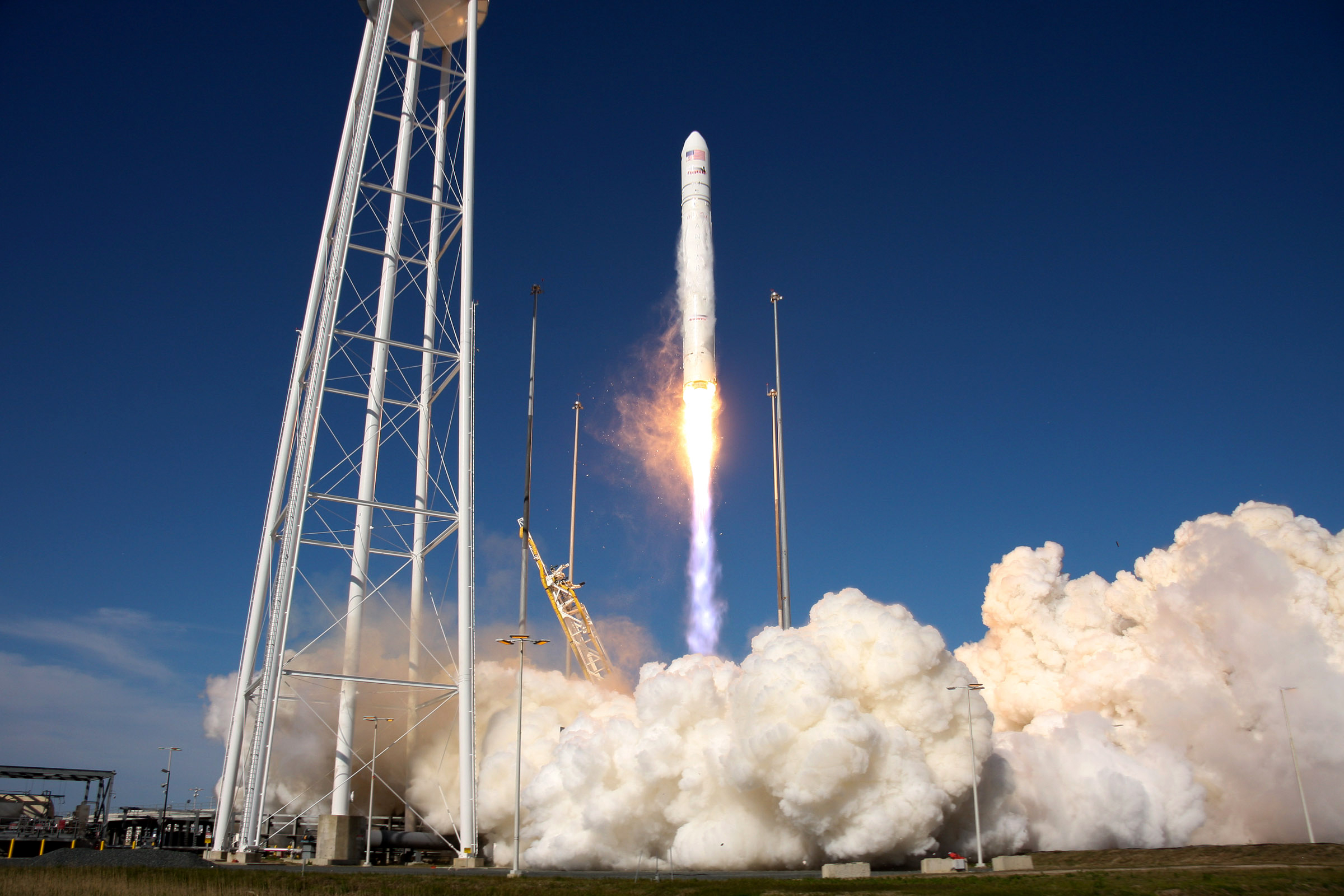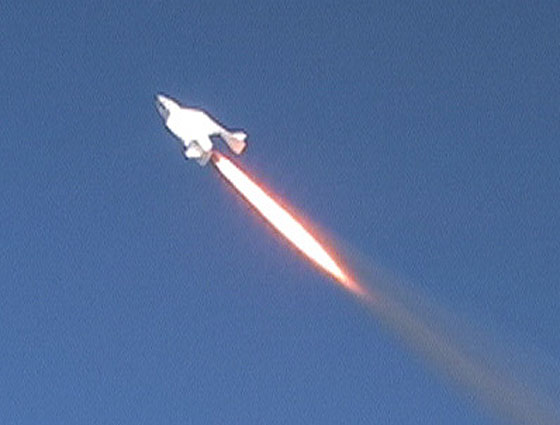
Utah-based ATK has received a contract from Orbital Science’s Corporation to produce propulsion systems for the Air Launch Vehicle (ALV) that Orbital is building for Stratolaunch Systems Corporation. It is hoped that this new delivery system will have a positive impact on providing access to orbit.
The terms of this contract primarily deal with designing, developing, and building flight hardware for Stratolaunch. ATK will provide motors for the ALV’s first and second stages.
“ATK is pleased to receive this award for the development and production of first and second stage propulsion for the Stratolaunch ALV,” said Blake Larson, president of ATK Aerospace Group. “Our innovative propulsion concept combines both proven and state-of-the-art technologies that will provide a high-performing, cost-effective solution for the ALV.”
ATK is already working closely with Orbital’s commercial cargo efforts. ATK provides the Castor solid rocket motors that are used in Orbital’s Antares launch vehicle (which conducted its first test flight this past April). The relationship between the two companies extends back even further than this, however, with ATK providing solid rocket engines for Orbital’s air-launched Pegasus rocket. The Pegasus is somewhat similar to Stratolaunch, in that it hangs underneath a carrier aircraft, an L-1011. When Pegasus is at a specific height, it is released and its rocket engine activated, sending it into orbit.

“Our design solution for the ALV will take full advantage of ATK’s experience with large diameter solid rocket motors, like those built for the space shuttle and for the Titan IVB launch vehicle. The stages for ALV will also use high-strength, low-weight graphite composite cases, advanced propellants, and heritage materials from ATK’s extensive line of commercial solid rocket motors,” said Scott Lehr, vice president and general manager of ATK’s Defense and Commercial Division.
To date, ATK has built more than 1,600 commercial solid rocket motors for a wide range of launch vehicles. Some of these include: United Launch Alliance’s Delta II and Delta IV rockets, as well as Orbital’s Pegasus, Taurus, Minotaur, and Antares launch vehicles. ATK also produced the Solid Rocket Boosters that powered every space shuttle mission aloft.
According to ATK, while commercial space efforts might have entered into the public consciousness only recently, ATK has been producing motors for this market since 1987. The Graphite Epoxy Motor 40, or “GEM-40,” is still in service today on the Delta II (there are currently three flights of the Delta II remaining before the system is retired).
“Solid rocket motors use stable propellants and have proven highly reliable in a wide variety of systems. They are highly engineered systems that are designed for simplified operations, and minimize ground support infrastructure requirements,” Lehr said.

Stratolaunch Systems was founded in 2011 by entrepreneur Paul G. Allen and Burt Rutan. Allen backed Scaled Composites entry into the Ansari X-PRIZE—SpaceShipOne—which was founded by Rutan. Allen has expounded on these efforts with the stated intent of revolutionizing space transportation. According to an issued statement, Allen’s efforts are focused toward providing quicker, more efficient, and lower-cost access to space.
The company hopes to prove that it can provide a more flexible launch system that would be capable of sending payloads into orbit from a variety of locations. The company feels that their system would reduce issues that frequently stymie traditional launches such as range availability and weather conditions.
Stratolaunch consists of three primary systems, which somewhat resemble the aforementioned SpaceShipOne and its carrier aircraft WhiteKnightOne. Both of these systems utilize carrier aircraft which were designed by Mojave, Calif.-based Scaled Composites. The rocket system that Stratolaunch utilizes is being developed by Orbital Sciences. The final key element is the rocket component’s payload. The company plans to start off with unmanned missions. However, Stratolaunch has stated its intent to conduct manned operations as soon as the system both proves its viability as well as its capability to conduct these missions safely.
Want to keep up-to-date with all things space? Be sure to “Like” AmericaSpace on Facebook and follow us on Twitter:@AmericaSpace



